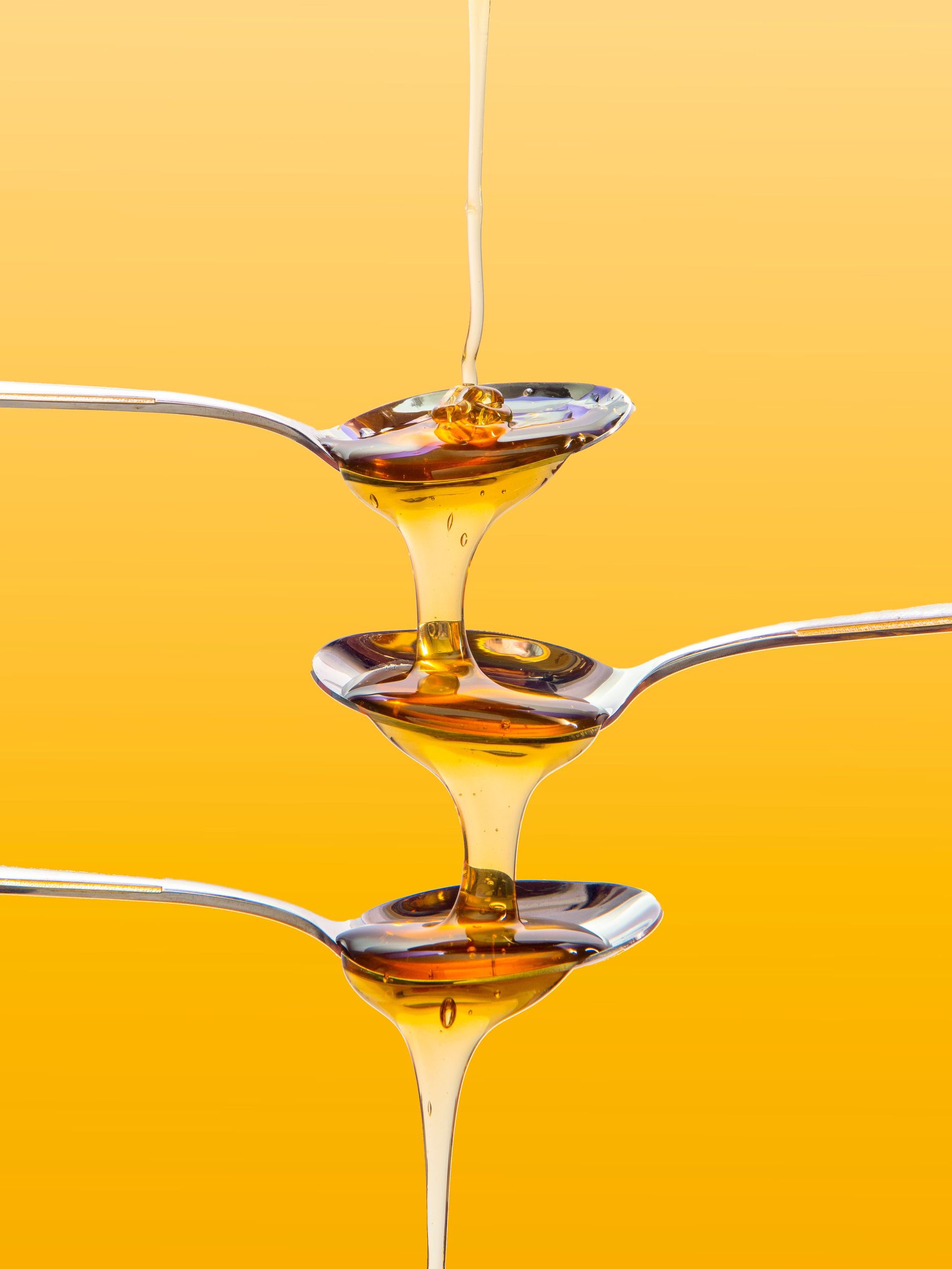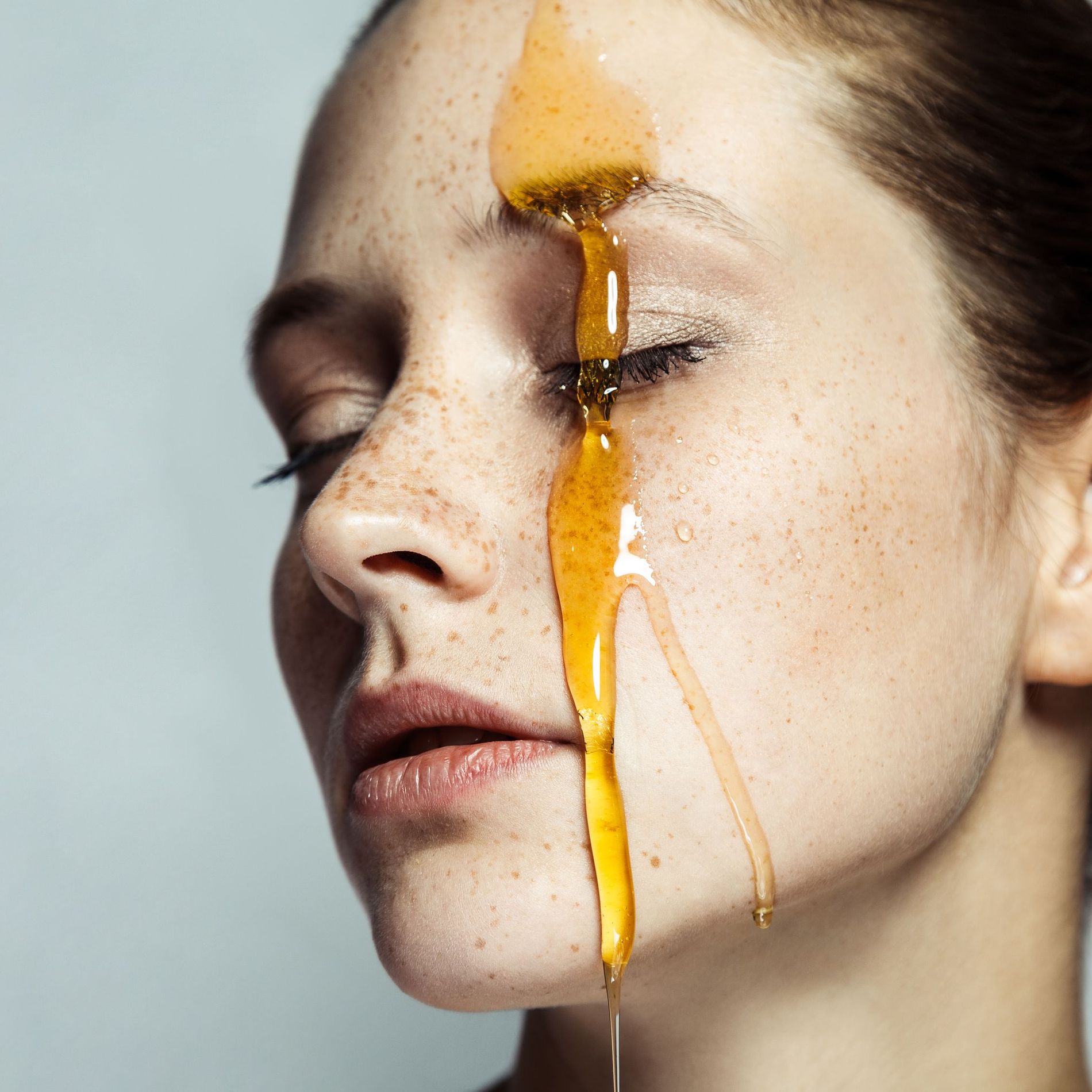Exactly how to migrate the condiment from your kitchen to your bathroom's skincare cabinet
Honey – the sticky and sugary staple crafted by bees – is more than just delicious in your afternoon tea or evening golden milk. “Natural skin enthusiasts often praise honey due to its many benefits for the skin,” says NHS doctor Dr. Kemi Fabusiwa – and with similar feedback dating back to 2000 BC, the therapeutic properties are worth considering. From acne and dryness, to off-kilter pH and uneven skin tone, a topical application of honey may be your golden ticket to an improved complexion.
What does honey do for the skin?
Honey has both natural enzymes and is a humectant, which means it draws moisture in and helps the skin to retain it. “It has natural antibacterial properties, which may help combat certain types of bacteria associated with acne,” says Dr. Fabusiwa.
And as if all that wasn’t enough? “Honey is a powerful antioxidant that can protect from free radical damage from environmental pollutants and decrease signs of aging,” says board-certified dermatologist Dr. Chris Tomassian, adding that the sticky stuff also contains flavonoids that can decrease pro-inflammatory markers and therefore decrease skin inflammation.

Types of honey and their benefits
“Regarding skin care, not all honey is created equal – the choice of honey type can depend on the specific skin concern being addressed,” says Dr. Tomassian. “Manuka honey, for instance, is renowned for its superior antibacterial properties, making it especially beneficial for acne-prone or inflamed skin.” Manuka is backed by ample research and is even used clinically for wound treatment around the world. Naturopathic Dr. Brendan Courneene notes that honey’s benefits shifts depending on the local floral sources. Soothing lavender honey is suitable for skin conditions like psoriasis and eczema (always spot test, of course); orange blossom honey has high antioxidant levels that make it ideal for brightening and addressing hyperpigmentation; and thyme honey has potential antibacterial and anti-inflammatory properties that suggest it may benefit acne.
Regarding skin care, not all honey is created equal – the choice of honey type can depend on the specific skin concern being addressed.
Dr. Chris Tomassian, board-certified dermatologist
No matter your preferred honey, a raw variant—one that has not been heated or filtered—is always the best choice. “Raw honey retains more of its natural enzymes, antioxidants, and nutrients that may offer potential benefits for the skin,” says Dr. Fabusiwa. “Always ensure it’s sourced sustainably and free of adulterants,” adds Dr. Courneene.
What about other bee products?
While also beneficial for the skin (and produced by bees), propolis and royal jelly are distinct from honey. Though these bee products are also from processed floral nectar and thus boast similar antioxidant, anti-inflammatory, and antibacterial properties as honey, the difference lies in form and function: Propolis is the glue of the beehive, while royal jelly is a worker bee secretion consumed by the colony’s queen.
The phenolic compounds in propolis lend to the aforementioned properties, and extracts exist for topical application. Royal jelly is thought to be effective in moisturizing (again, a humectant) and even said to boost collagen production thanks to a hyper-specific acid (10-hydroxy-trans-2-decenoic, to be exact).
How to use honey for skin and skin care
“If you choose to apply honey to your skin, the best way to do so is by applying a thin layer of honey to clean, dry skin and leaving it on for a short period – typically 15 to 20 minutes – before rinsing off with lukewarm water,” advises Fabusiwa.
Dr. Courneene agrees with the direct approach. For a makeshift mask, he suggests mixing honey with yogurt, oatmeal, or clay before application, and rinsing thoroughly (again, after 15 to 20 minutes) with a gentle exfoliant or cleanser. “As effects on the skin vary, trial and error is to be expected,” he adds. “For pre-existing skin conditions or concerns, seek a dermatologist’s guidance before incorporating honey into your routine.”
Originally published on Vogue.com.
